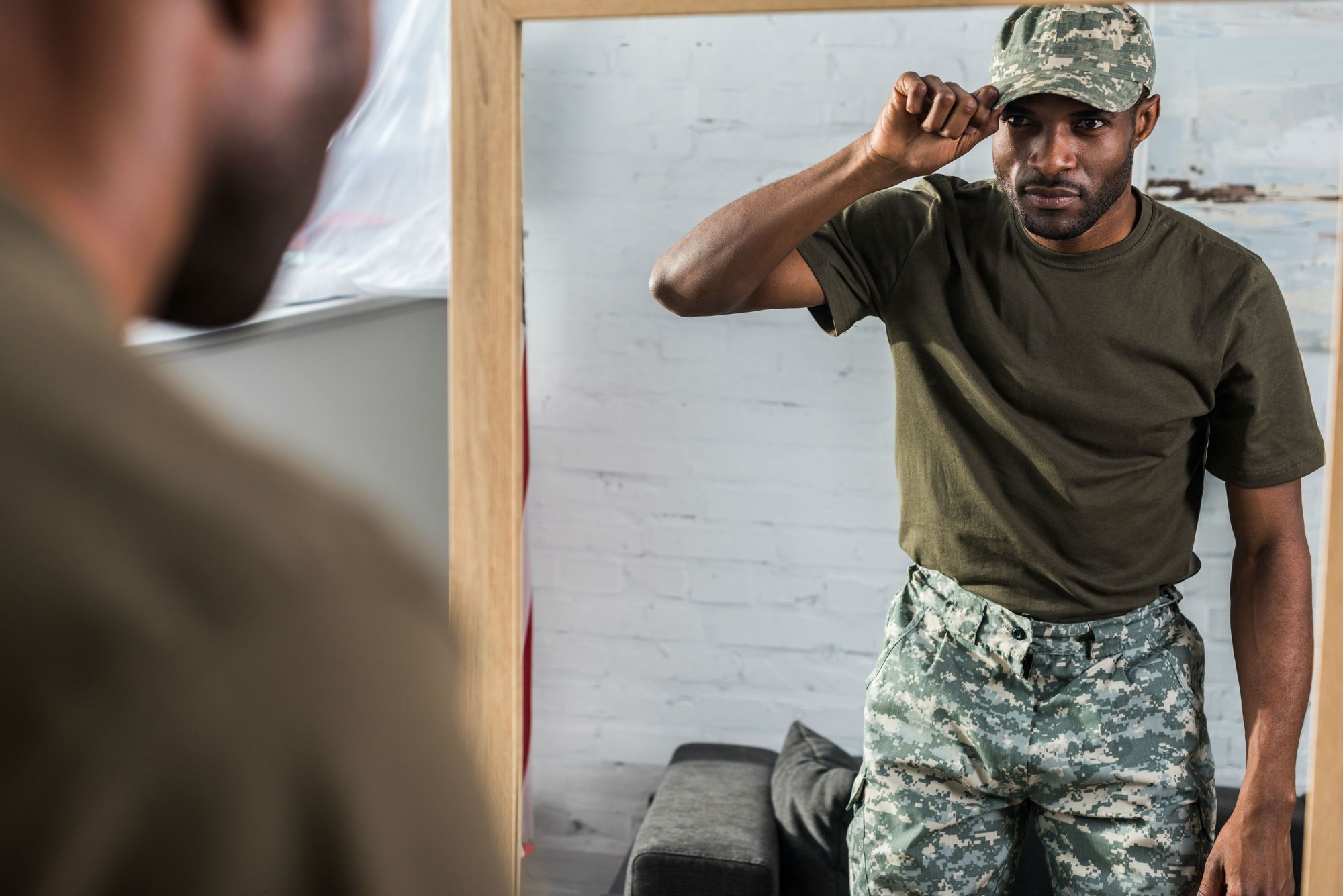Top Class Actions’s website and social media posts use affiliate links. If you make a purchase using such links, we may receive a commission, but it will not result in any additional charges to you. Please review our Affiliate Link Disclosure for more information.
Soldiers who served overseas depended upon military-grade earplugs from 3M, but now fear the earplugs cause hearing loss, and are turning to 3M combat arms earplugs lawsuits to hold the company responsible.
What earplugs are under scrutiny?
3M dual-ended Combat Arms Earplugs Version 2 were provided to military members who served between 2003 and 2015. These earplugs were made by Aearo, a company that 3M purchased in 2008.
How can earplugs cause hearing loss?
The earplugs in question were allegedly too short to stay properly inserted in the ears of some wearers. The earplugs could reportedly loosen without the wearer realizing it, causing the soldier to become exposed to potentially dangerous sound levels while believing themselves to be properly protected.
Why were the 3M Combat Arms earplugs considered dual-ended?
The 3M Combat Arms Earplugs had an olive green–colored end that was intended to block all sound when placed in the ear. The yellow end of the earplug was supposed to allow the soldier to hear spoken commands, but to greatly reduce loud noises. Several lawsuits have been filed by service members claiming the earplugs didn’t work as promised and caused them to suffer hearing loss, tinnitus, and other hearing difficulties.
Why would the earplugs loosen?
Lawsuits allege the defective earplugs were too short and the wearers were not instructed to fold back the flanges of the side not in use, which in some cases might have helped better protect the ears, reports the Military Times.
How long has 3M known the earplugs were defective?
Aearo allegedly knew as early as the year 2000 that the earplugs could imperceptibly loosen. The company reportedly submitted falsified test results to show the earplugs met the required level of decibel suppression, which meant service members were unknowingly exposed to sounds loud enough to cause hearing loss even when wearing the earplugs.
How did the government find out the earplugs were defective?
A lawsuit was filed under the qui tam, or whistleblower, provisions of the False Claim Act, which allows private parties to sue on behalf of the government when they believe a defendant has submitted false claims for government funds and is allowed to share in any recovery.
Why did 3M agree to pay $9.1 million to settle the whistleblower lawsuit?
3M agreed to pay $9.1 million to resolve allegations it knowingly sold the earplugs to the U.S. military without disclosing the defects that could inhibit the device’s effectiveness in protecting the ears of service members. As part of the settlement, the whistleblower received $1,911,000.
How many soldiers suffer from hearing loss?
Hearing loss and tinnitus (ringing in the ears) were the two most common service-related disabilities among U.S. veterans during the fiscal year ending 2012.
How loud are noises often heard in the military?
According to the 2015 study “Impact of Noise on Hearing in the Military,” the noise from a hand grenade can be 158 decibels and a shot from a light anti-tank weapon 184 decibels. The continuous noise inside of an armored vehicle can be around 107. High level, short-duration exposure to more than 140 decibels can cause immediate and permanent hearing loss, while long-term exposure to low-level noise can cause hearing-related cellular death up to 30 days after the noise has dissipated.
What is unique about military hearing loss?
Noises that cause hearing loss vary, but for anyone in the military the high-decibel levels service members are exposed to and the length of time of that exposure can impact their hearing for the rest of their lives.

“Our military personnel are exposed to extreme levels of noise,” Roland told CBS News last March. “When sound strikes the bone of our skull, the bone moves with the sound… Even if you completely block the ear, sound above a certain level can still get to the inner ear through bone conduction, [and] still be very damaging.”
Why is 3M facing civil lawsuits regarding hearing loss among military members?
3M allegedly knew it was selling defective earplugs, according to lawsuits filed by military veterans who have suffered hearing loss and tinnitus. They were told they were using the best earplugs available on the market and that by using the military-grade earplugs, their hearing would be saved.
CBS News spoke with two former military members who said they used the earplugs in both military training exercises and in combat. Joseph Junk joined the Army and served three years. David Hendersen joined the military after the Sept. 11, 2001 terrorist attacks. He felt it was his patriotic duty to serve his country.
The men said the allegations that 3M knew the earplugs were not capable of protecting the service members’ ears is unforgivable.
The company had an obligation to protect the ears of military personnel and to disclose any defect in the equipment, they said. “It wasn’t an omission,” Hendersen told CBS News last year. “It wasn’t something missed. It was deliberately lying to gain money and hurting our service members.”
3M military hearing loss update
3M now faces one of the largest consumer mass tort cases ever, according to the Minneapolis Star Tribune. Now, more than 200,000 members of the military allege that the defective earplugs cause hearing loss, and that the company and its predecessors knew of the problem.
Several cases that are a part of the mass tort went to trial in April 2021. These cases are considered bellwether cases, used for the court and the parties to test their arguments to move the litigation as a whole toward resolution. After hearing the claims of former Army members who say they suffered irreparable hearing loss after using the 3M earplugs, a Florida federal journey granted a total $7.1 million verdict in the plaintiffs’ favor.
Each plaintiff has been awarded more than $2 million in punitive damages.
This is just the first trial of a multidistrict litigation (MDL) that may involve as many as 240,000 claims.
Plaintiffs in the 3M earplug lawsuits have seen other wins. In December 2021, 3M was ordered to pay $22.5 million to one plaintiff. This record breaking award was quickly dethroned by a $110 million award to two veterans in a January 2022 jury trial.
In one case, 3M reportedly attempted to claim some immunity from the charges as a government contractor. The plaintiffs said that 3M should not be able to claim government contractor immunity.
“3M’s ‘government made me do it’ defense fails on numerous grounds and should be denied by the Court,” a lawyer for the plaintiffs said in a statement at the time, according to the Pensacola News Journal. “The government never approved specifications for the Combat Arms Earplug v2, and 3M has already paid $9.1 million to the federal government to resolve allegations that it concealed the product’s defects and dangers from the military. We will continue to hold 3M accountable on behalf of the 140,000 service members, veterans and civilians who suffer from hearing damage due to these defective earplugs.”
According to the Star Tribune, 3M claimed that it and its predecessor, Aearo, worked in concert with the Department of Defense when it came to using the allegedly defective earplugs; however, the judge pointed out that the two companies failed to share information about the earplugs with the military and rejected 3M’s motion to dismiss the lawsuit.
What are signs of hearing loss?
Hearing loss can occur over time or it may appear suddenly, according to HearingLife.com. In some cases, you might hear people having a conversation, but you cannot understand what they are saying. You might notice you’re asking people to repeat themselves quite often. You also might have problems hearing someone talk in crowded, noisy places, such as in meetings or at restaurants.
What are risks of hearing loss?
Veterans who suffer from hearing loss are at a greater risk of isolation and depression because the frustration that comes with difficulty hearing can cause the person to withdraw from social activities. Active service members between 2003 and 2015 who may have been issued defective earplugs may be able to hire an attorney to help determine if they have a claim.
Join a free 3M earplug lawsuit investigation
If you or a loved one suffered partial or total hearing loss and/or tinnitus after being issued 3M Combat Arms Earplugs between 2003 and 2015 in the U.S. military, you may be entitled to compensation.
Fill out the form on this page now to see if you qualify!
ATTORNEY ADVERTISING
Top Class Actions is a Proud Member of the American Bar Association
LEGAL INFORMATION IS NOT LEGAL ADVICE
Top Class Actions Legal Statement
©2008 – 2024 Top Class Actions® LLC
Various Trademarks held by their respective owners
This website is not intended for viewing or usage by European Union citizens.
Get Help – It’s Free
Join a Free 3M Ear Plugs Class Action Lawsuit Investigation
If you qualify, an attorney will contact you to discuss the details of your potential case at no charge to you.
PLEASE NOTE: If you want to participate in this investigation, it is imperative that you reply to the law firm if they call or email you. Failing to do so may result in you not getting signed up as a client or getting you dropped as a client.













